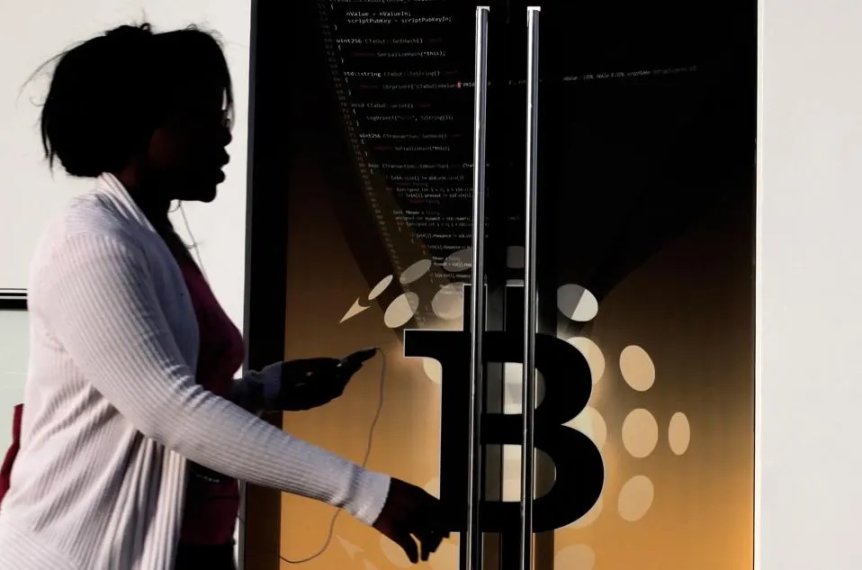In the context of high inflation and political unrest, Bitcoin has firmly taken root in Africa.
Bitcoin has firmly taken root in Africa amid high inflation and political unrest.Author: Susie Violet Ward
Translation: Luffy, Foresight News
As countries around the world strive to deal with financial and political turmoil, Bitcoin is no longer just a cryptocurrency. It symbolizes hope, especially in African countries in the southern hemisphere, where its potential benefits are most apparent.
- Which country has the highest awareness of cryptocurrencies?
- Rollbit on Solana? Breaking down the gaming part of Lamas Finance
- Old-timers Leaving the Crypto Circle Some Get Married and Have Children, Some Start New Businesses
The crucial role of Bitcoin in Africa
The average age of the population in Africa is 18.8 years, which is in stark contrast to the average age of 42.2 years in Europe. This demographic characteristic is leading the African continent towards an innovative financial system, as young Africans seek unique solutions in the face of high banking fees, lack of infrastructure, and ongoing political interference.
Anita Posch, a Bitcoin advocate and founder of Bitcoin for Fairness, emphasizes that “if Bitcoin works in Zimbabwe, it will work anywhere else.” Master Guantai and Noelyne Sumba also agree with this view, as they have witnessed the potential of Bitcoin in extreme circumstances. In a country plagued by authoritarian rule, human rights issues, and rampant inflation, Bitcoin stands out. As Posch emphasizes, Zimbabwe has demonstrated the power of Bitcoin as a tool for freedom and human rights.
Posch discovered Bitcoin in 2011, but it wasn’t until 2017 that she fully embraced it after realizing its humanitarian impact. After more than 20 years of working in web design, her motivation to shift towards Bitcoin education was a desire to make a meaningful contribution to the world. Long-term educational opportunities, such as the “Crack The Orange” project mentioned by Posch, are provided. “It’s better if people do it themselves,” Posch explains.
Master Guantai also highlights the growth of Bitcoin in Africa. With the continuous development of the Bitcoin community and education, the future seems promising.
He said, “Africa will be at the forefront of adoption and innovation in the field of Bitcoin. The urgency brought by our struggle against corruption and inflation, combined with the strong attention from Bitcoin companies and investors, ensures that this vision will become a reality. In our lifetime, there are no other competitors that can replace Bitcoin and provide us with the financial freedom we seek.”
Master Guantai’s mission is far-reaching. Considering Africa’s tumultuous history—from colonialism, racial segregation, and challenges in foreign investment to widespread poverty—Bitcoin shines as a pathway to economic empowerment and transformation, showcasing its immense potential.
Like Anita Posch, Master Guantai also advocates for a holistic perspective. They are keenly aware of the misinformation and questionable projects that surround the world of cryptocurrency. They both emphasize that addressing these threats and misconceptions is crucial for the transformative solution that truly presents Bitcoin for Africa.
Noelyne Sumba, the head of Machankura, is working to lower the barrier to access Bitcoin in countries such as Ghana, Kenya, Malawi, Namibia, Nigeria, South Africa, and Zambia. To achieve this goal, Machankura integrates the Bitcoin Lightning Network with WhatsApp’s API. This groundbreaking approach allows individuals to transact with Bitcoin even without an internet connection.
Empowering Financial Tools in Africa
To further promote Bitcoin education in Africa, The Geyser Fund has played an active role by providing donations to innovative projects. These initiatives enhance the growing momentum of the Bitcoin community and highlight the importance of grassroots education.
However, challenges still exist. Acquiring Bitcoin and understanding its long-term value remain obstacles. Financial literacy is a new concept for many people in African countries, and savings is an unfamiliar territory for them. Furthermore, scams exacerbate people’s skepticism towards Bitcoin, further hindering its adoption.
In the evolving financial landscape, these innovators play a crucial role. They take on the responsibility of imparting Bitcoin knowledge to those who need it the most.
Despite the challenges, everyone remains optimistic that “Bitcoin will not disappear.” With more people sharing positive Bitcoin experiences, its adoption will inevitably accelerate. Amid rising global inflation and declining trust in traditional banks, Bitcoin seems to solidify its position as a reliable financial solution like never before.
In the complex process of technological evolution and financial transformation, Bitcoin and its decentralized promise are an unstoppable trend. As Anita Posch summarized, “This is a silent revolution.”
We will continue to update Blocking; if you have any questions or suggestions, please contact us!
Was this article helpful?
93 out of 132 found this helpful
Related articles
- What are the global regulations on the supervision of encrypted assets that the SEC is committed to adopting?
- HashKey Investment Manager The likelihood of the market mainly fluctuating is relatively high, and the market sentiment remains poor.
- From top mining companies to top crypto funds, Fidelity Mafia is becoming a talent incubator for Crypto.
- Reflections on the Game Marketplace, Asset Valuation Dimensions, Metaverse Interactions, and AI Games Triggered by the Treasure Trove
- Are cryptocurrencies, as legal assets, subject to taxation in mainland China?
- Can Bitcoin miners successfully transition to artificial intelligence and perfectly catch the next wave?
- August Cryptocurrency Market Summary Most indicators further corrected, and the total on-chain transaction volume decreased by 6.3% after adjustment.





